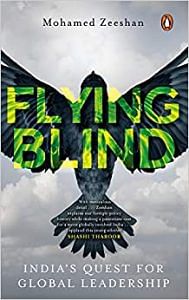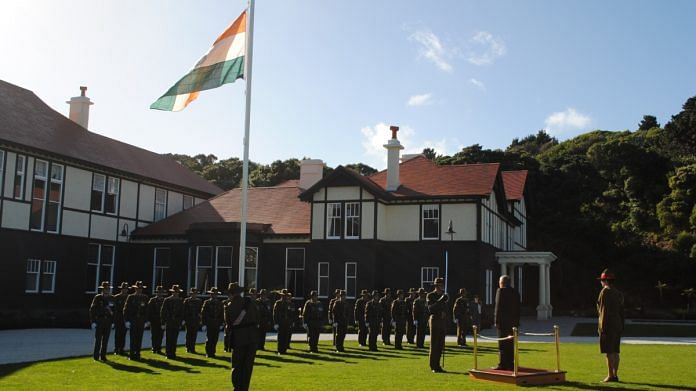To successfully execute foreign policy strategy across countries, Indian diplomatic missions must consistently stay in touch with the political, economic and social realities of the country they serve in. They must be staffed with highly skilled analysts who can conduct smart and credible research and analysis of local conditions—in order to stay in touch with public opinion and represent the popular will. Indian diplomats will also need to be in constant touch with local civil society organizations at all levels.
The problem for New Delhi is that all these activities take considerable human resources of high quality. And this is where India’s woefully understaffed diplomatic corps is a big problem. Since most Indian missions abroad have too few diplomats at their service, almost all manpower is used up in bureaucratic work (many of which are compounded, ironically, by India’s lack of influence in that country). These include issuing visas, rescuing Indian citizens in distress, and so on. The shortage of staff also means that almost all strategic thinking capacity in the Indian missions is focused exclusively on meeting India’s own domestic needs through MoUs and bilateral agreements. Very little capacity is left over to focus on the host country’s internal dynamics or its needs. In other words, Indian diplomats spend most of their working hours thinking about India rather than the country they are posted in. That is also why visits by the Indian prime minister to these countries read more like the travels of a businessman, rather than that of a global statesman: He is able to offer very little on what matters to them, politically.
If India had a strong intelligence-sharing partnership with the US (and other allies) across countries, US intelligence capabilities will help make up India’s own gaps. American diplomatic missions around the world already do the sort of intelligence-gathering and grassroots analysis that I am prescribing here — and a partnership in this exercise between Indian and American missions in different countries will be helpful to both India and the US.
Also read: Biden now in White House, vaccine partnership should be India-US priority
Yet, eventually, India will need to build its own capabilities— particularly by developing and increasing its human resources deployment. The good news is that this is a problem that can be easily solved by political will in New Delhi. India’s understaffed Foreign Service is not a reflection of a lack of financial or human resources in India. According to the Ministry of External Affairs, India has about 850 diplomats manning missions abroad as well as various posts at home. This is about the same size as Singapore’s foreign service—a country whose economy produces only 12 per cent of the total value that India produces each year. India also has at its disposal innumerable talented young thinkers who are currently in policy schools scattered across the world. If New Delhi wanted to enrich its Foreign Service while expanding it, it could very easily tap into this rich pool of talent through lateral entry mechanisms, fellowships and other means.
The problem is that Indian politicians often think that foreign policy influence is a luxury. But instead, for India, it is now a necessity which will allow Indians to study, earn and prosper, both at home and abroad.
Change must also happen in New Delhi, not just in Indian missions overseas. There’s a mismatch between India’s strategic focus and its natural strengths: Much of India’s strategic thinking is military-centric. Delhi foreign policy circles and think tanks are dominated by military folks—former generals and senior army officers, who specialize in India’s national security problems in South Asia, and particularly the borders with Pakistan and China. This is a fallout of Indira Gandhi’s militaristic, neighbourhood – centric foreign policy pivot. But the problem for New Delhi is that India’s military does not have the global reach and presence to spearhead its quest for global leadership. Unlike America, India cannot — and likely never will—airdrop its troops to military bases all over the world. (And to complete the circle, since Delhi strategic thinking is very military-centric, it can’t quite drive India’s influence outside South Asia.)
Also read: World is warming up to China for trade. But India is left with just a handful of minilaterals
India’s global influence depends on the strength of its political and economic development; its path to global leadership is based on meeting the political and economic needs of other countries. Delhi foreign policy circles—both think tanks and the MEA— should skill themselves to reflect this fact. They should be investing heavily in analysts who study the economic and political conditions of countries all over the world, to see how India can meet their interests. By contrast, the military should serve only to defend the homeland. This is not unlike what the European Union and even China do: The EU’s power derives from political and economic influence around the world—not its military. And Xi’s global aspirations are based largely on political and economic efforts, such as BRI, the AIIB and party-training in Africa.
I am not, by any means, arguing that India should not develop its military presence; indeed, the military is essential in providing New Delhi the coercive strength it needs—a useful bargaining chip in assisting its political and economic efforts around the world. But military considerations should not be monopolizing the strategic blueprint for India’s global aspirations. That effort should be driven by grassroots intelligence, collected across Indian diplomatic missions, and tied together by multidisciplinary and globally relevant analysis in New Delhi.
This excerpt from Flying Blind: India’s Quest for Global Leadership Hardcover has been published with special permission from Penguin India.





But who is Mohamed Zeeshan? No profile given
Another ignorant and misguided “outsiders” treatise on things they havent got a clue about! Please spend a week in a foreign mission and see what is going on before edifying everyone.
India doesnt have a shortage of officers, it has a shortage of clerical staff who should be doing the beaurocratic work, like issuing visas passports etc…Only then can those recruited and trained to do foreign policy can get their act together and do what they are paid to do, what they are trained to do.
Recall the Editor’s magisterial essay – about three years back – on the state of Indian foreign policy. It could not have reached that pass if our diplomats – whether 850 or 2,000 is a matter of detail – were contributing meaningfully to policy formulation, analysis, long term strategic thinking. In recent years, they have simply been executing / implementing decisions, some / many of which they ought to have urged strenuously be not taken / reconsidered.